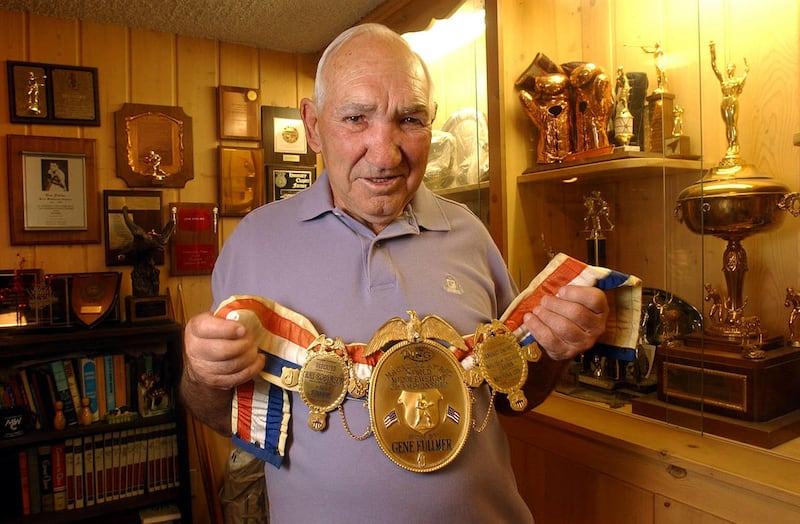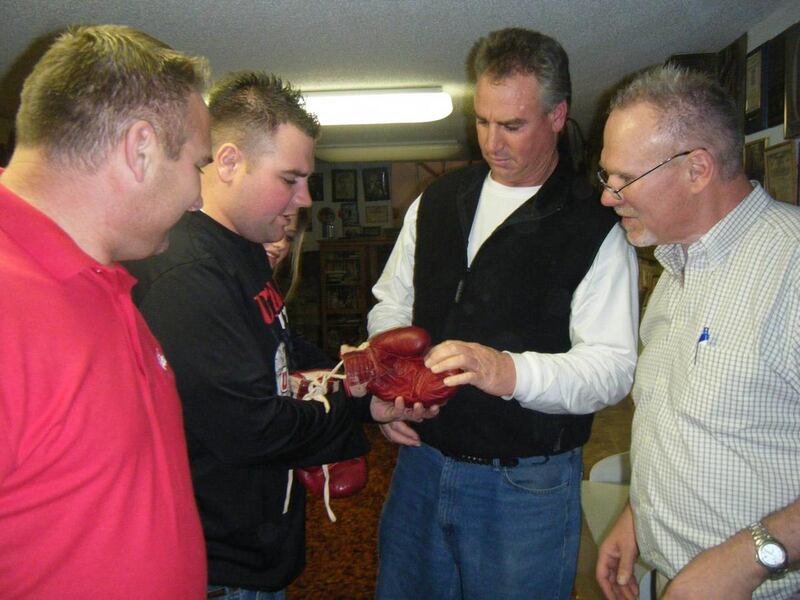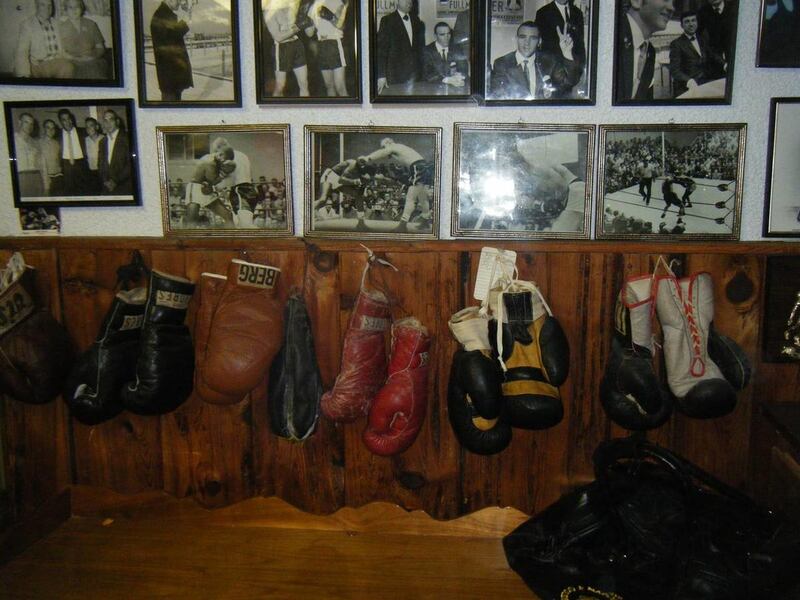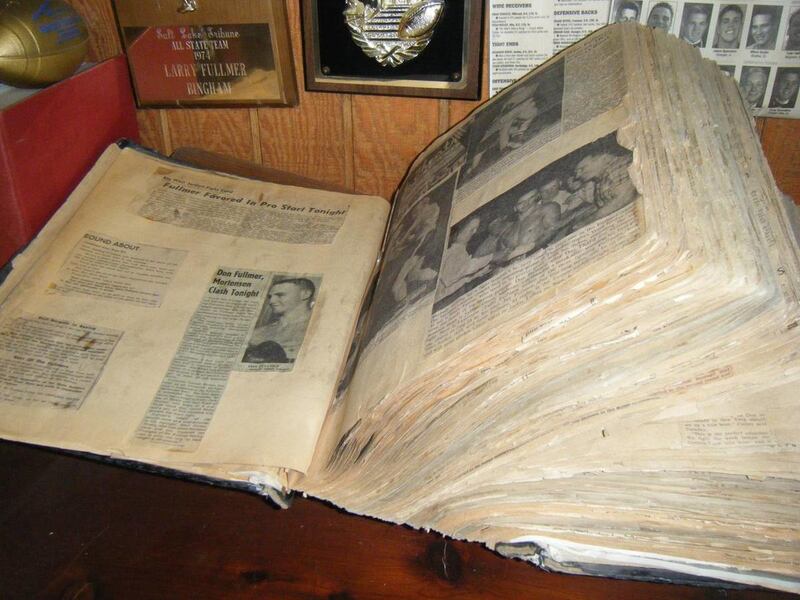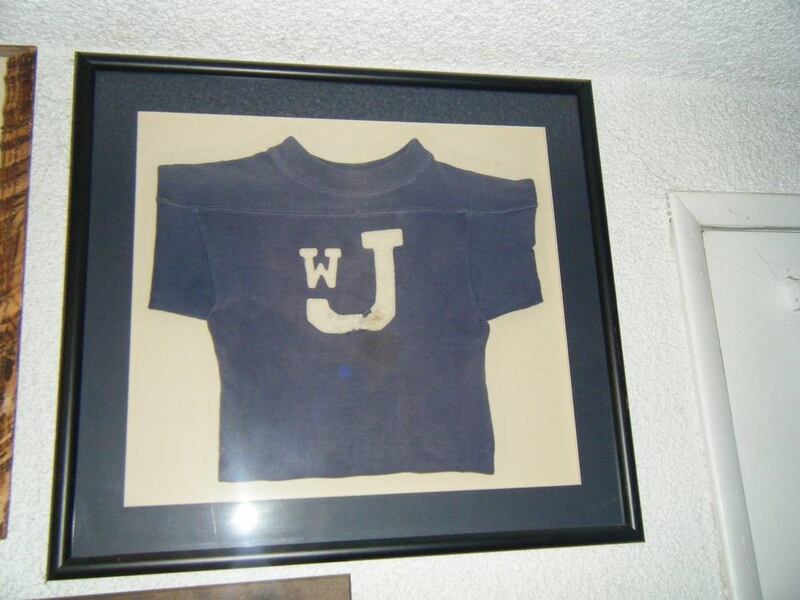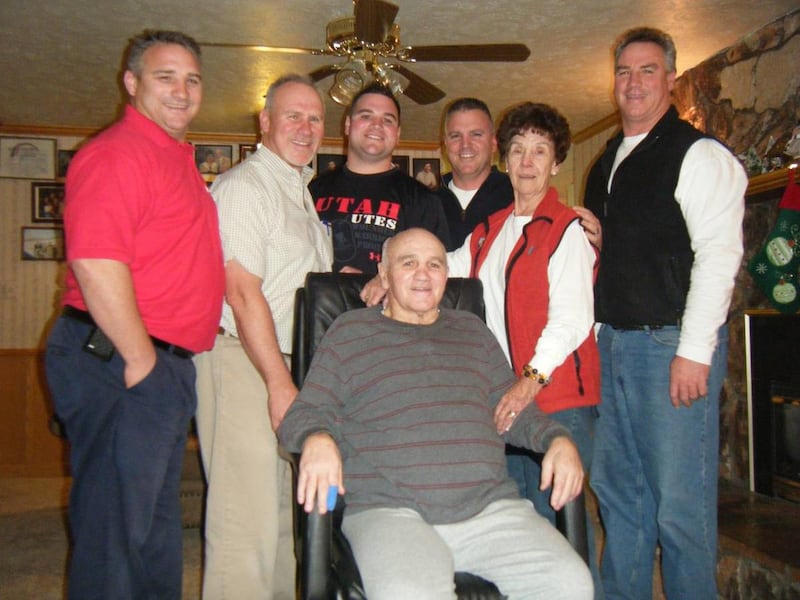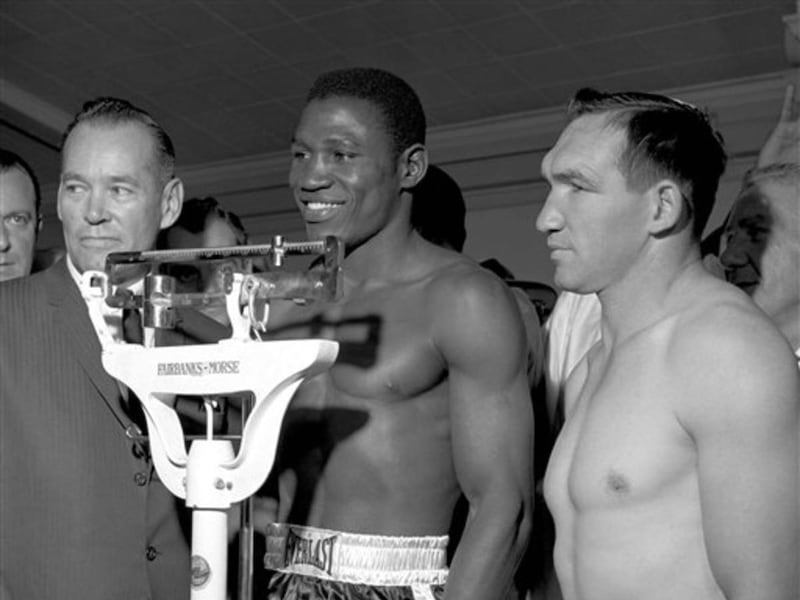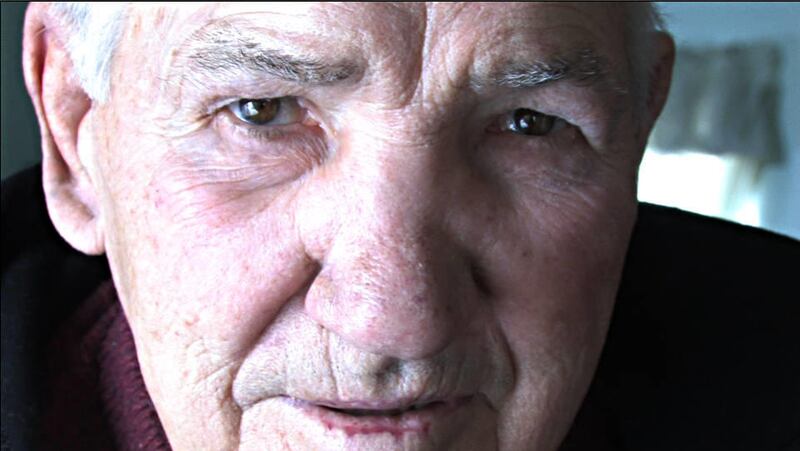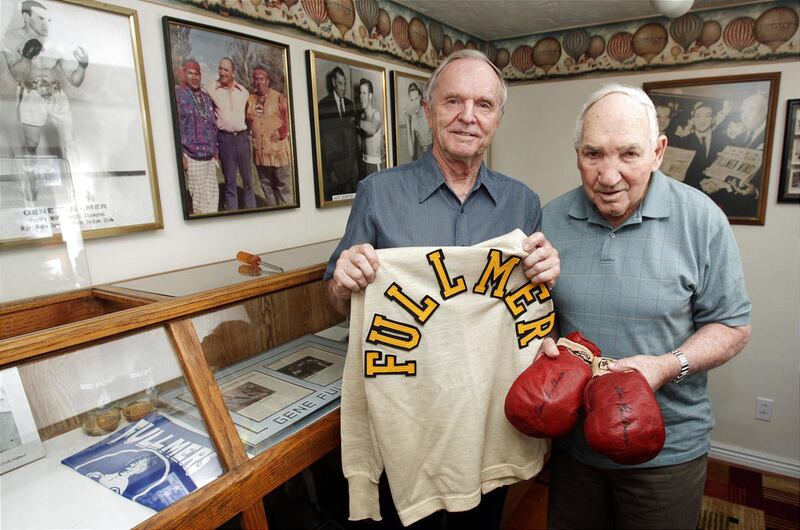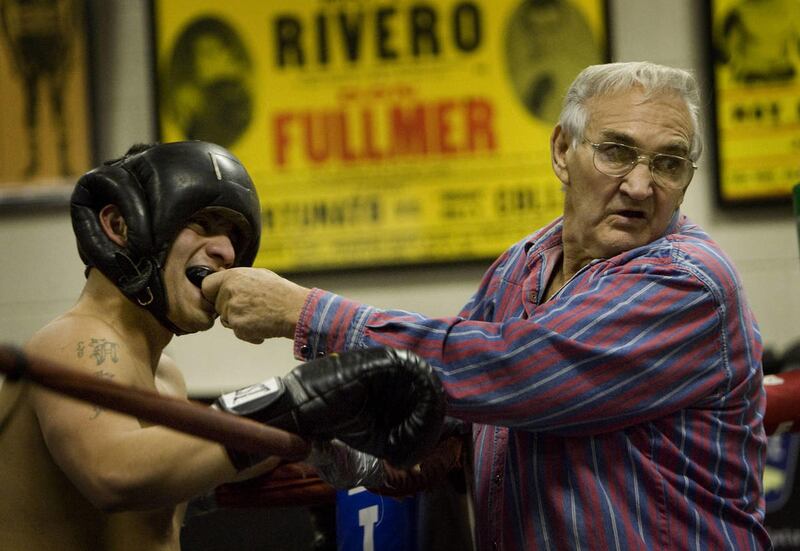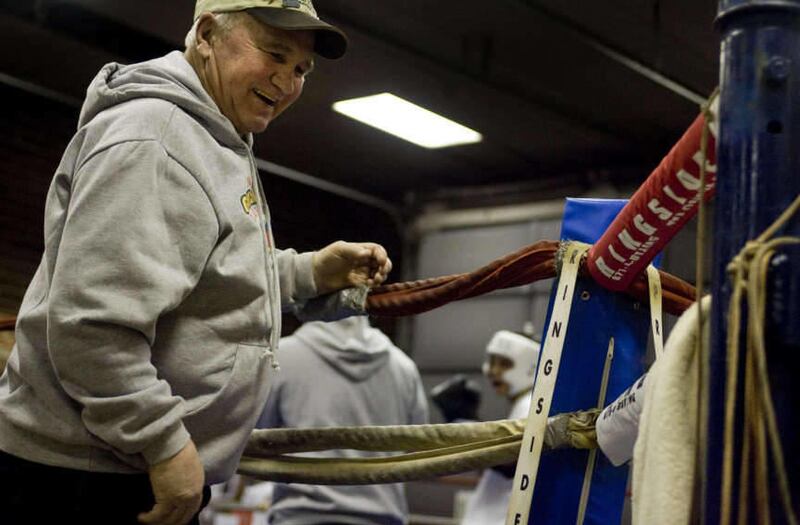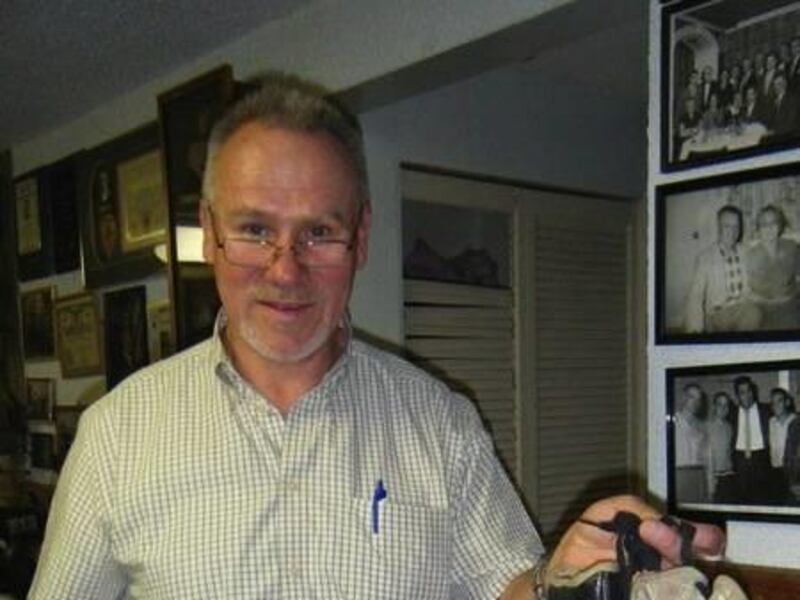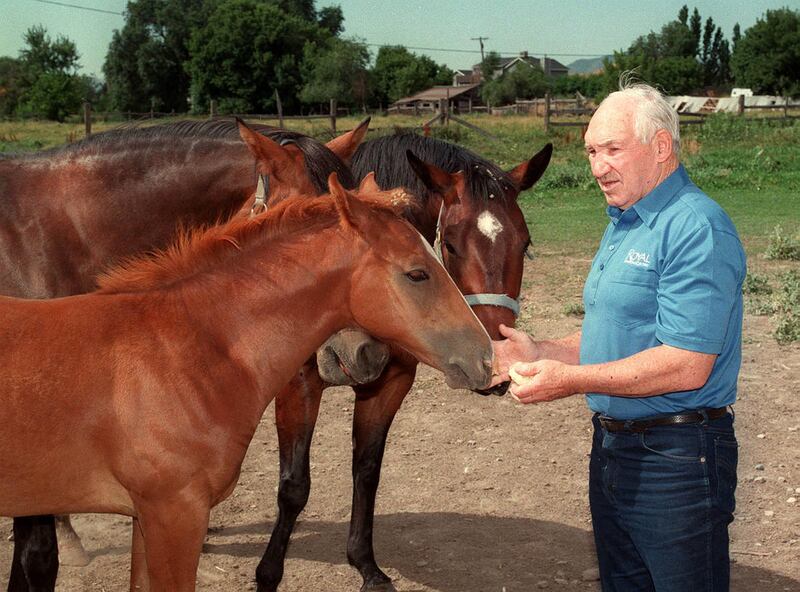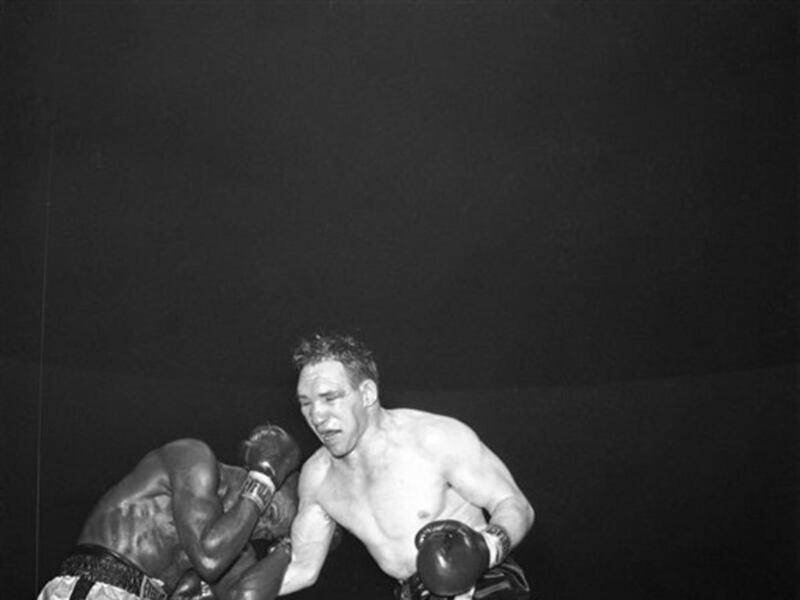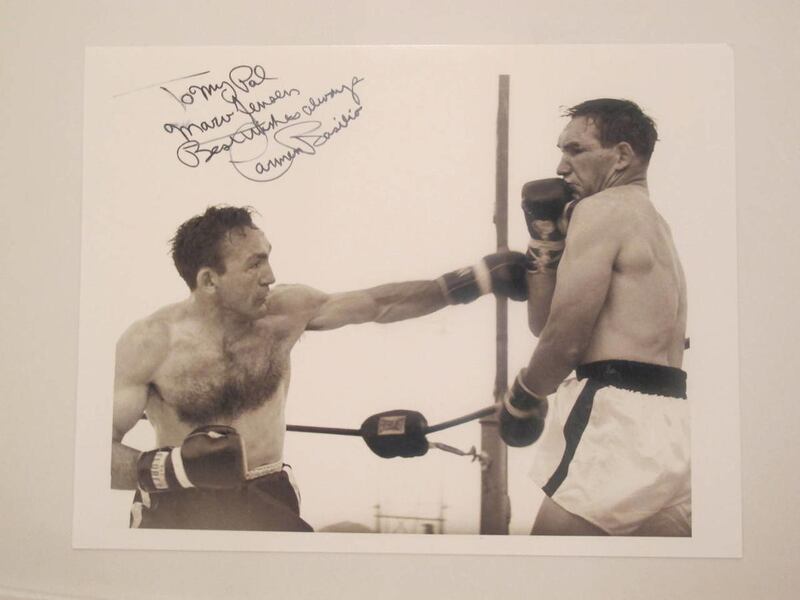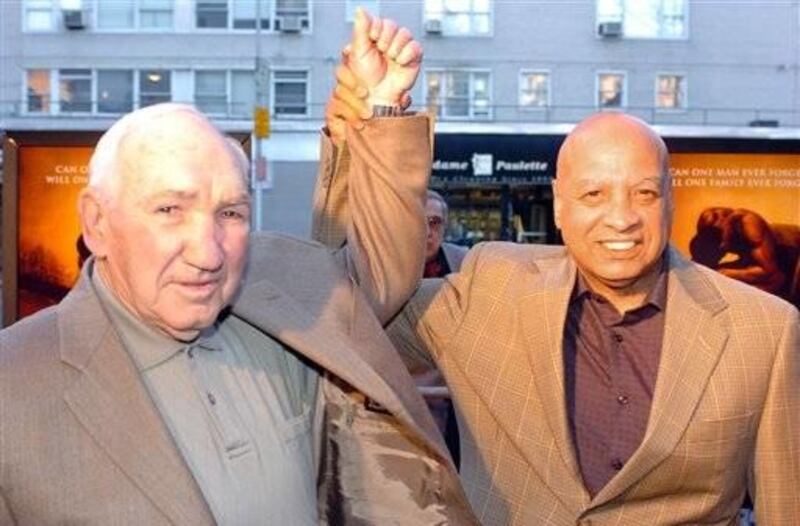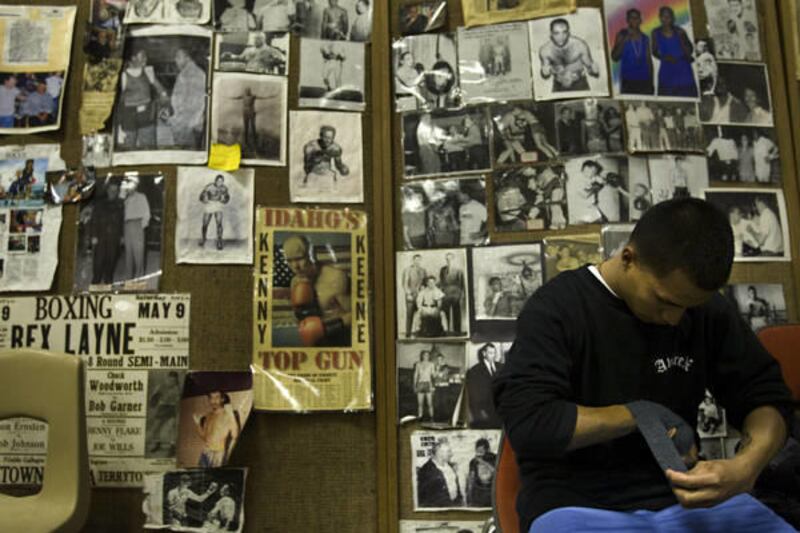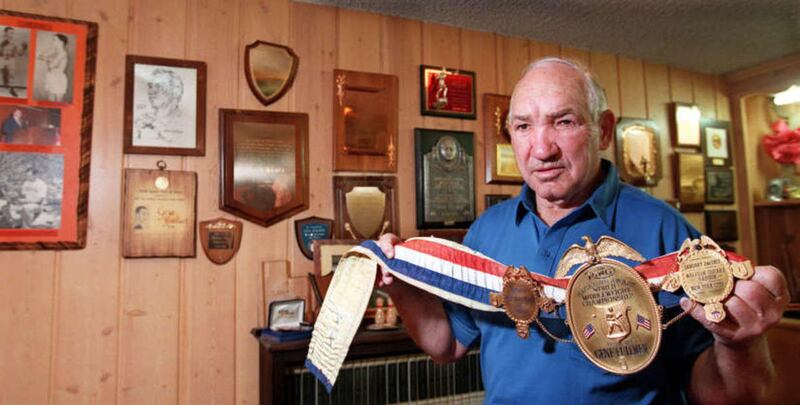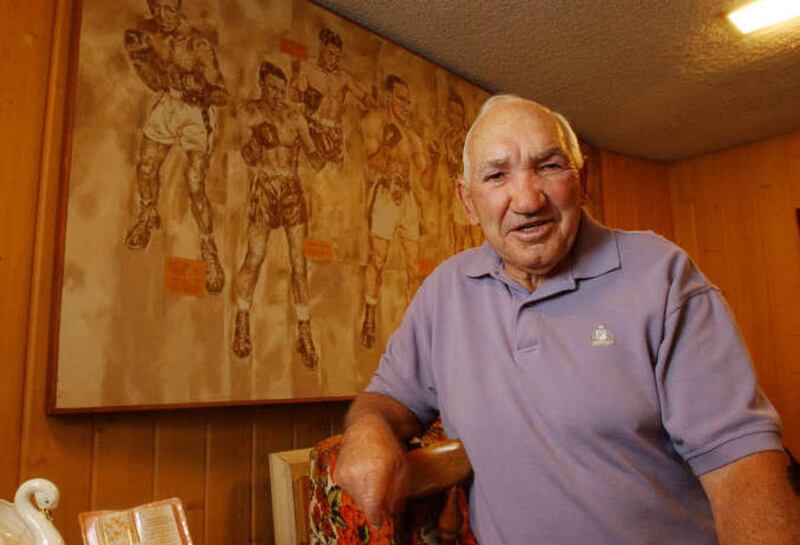What I remember about Gene is that he was just a hard-working guy. Nobody could out-train Gene. He was probably a great distance runner. He’d run miles and miles. I tried to run with him and he left me in the distance. – Ray Jenson
When boxing legend Gene Fullmer passed away Monday night in South Jordan, an era passed with him.
They’re all gone — the boxing Fullmer brothers, Don, Jay and Gene (the latter two dying within a week of each other), the great heavyweight Rex Layne, their mentor and manager, Marv Jenson, and so many others who came out of Jenson’s famed West Jordan gym.
“The end of an era, yes,” says Ray Jenson. “The gang from the Friday Night Fights is gone. It brings back many great memories.”
Jenson had a ringside seat — literally and figuratively — to Fullmer’s reign as middleweight champion of the world, as well as the golden era of boxing. Ray Jenson was the son of Marv, the man at the center of it all. After a doctor told Marv to give up boxing, he created a boxing club and built a ring in the feed house of a mink ranch. Later he built a boxing ring in the basement of his West Jordan home, and all hours of the day someone was down there training.
Eventually he built, next to the house, a 500-seat boxing arena and an indoor gym that included apartments. Fullmer and his sparring partners — usually men flown in from California — lived and trained there. There were even a couple of nationally broadcast fights held in that gym.
Ray saw it all, up close and personal. He was there when the Fullmer brothers boxed in the basement gym of his West Jordan home. He had his photo taken with Jim Braddock, the “Cinderella Man.” He mugged with Rocky Marciano. He saw a steady stream of boxers pass through his home to train with his father, including football great Jim Brown, who would come to Jenson’s home/gym to train for a potential boxing career when he had a contract dispute with the Cleveland Browns.
Young Ray had a little side business selling soda pop to the boxers. He went to Fullmer’s training camps. He ran with Fullmer on his training runs. He threw the medicine ball into the boxer’s belly while he did situps.
He even got into the ring with Fullmer once, but decided it was a bad idea and never did so again. “I found out he was always pretty serious,” says Jenson. “He had only one speed. My brother Bill got in the ring one time with Gene, too. He went one round and got roughed up. He told me the biggest mistake he made was getting in there for a second round.”
Young Ray was ringside for all but two of Fullmer’s 13 championship fights, and as he recalls, “Nothing made me more nervous than to watch his fights. He meant so much to us.”
You have to understand that boxing was big then. Can you even name the current heavyweight champion? You could in that era, which was the ‘50s and ‘60s. It was no different in Utah. There were college sports — Utah, BYU, Utah State — and there was, well, Gene Fullmer and the other fighters in Jenson’s stable. When Fullmer was at his peak, people would come from around the valley just to see him train. They would fill the 500-seat bleachers and then some, with Uncle Pete out on the street directing traffic on Redwood Road. There were only about 2,000 residents in West Jordan at the time, and the population would swell when Fullmer was in training for a big fight.
“If you talk to people from that time, almost everybody went out there to watch Gene prepare for one of his championship fights,” recalls Jenson. “They had to come all the way from Salt Lake, so that was quite a trip then. He was big-time in Utah and everybody followed boxing because of Gene. And he put Utah on the map.”
In those days everyone watched Friday Night Fights on TV, and they were riveted during Fullmer’s fights. When Fullmer won his first championship, beating the great Sugar Ray Robinson in Madison Square Garden, Utahns were thrilled. As Ray recalls, “There was a caravan of cars driving around West Jordan — there must have been a hundred of them — honking horns. Then they had a big parade for Gene downtown.”
Fullmer fought his fights around the world and throughout Utah — the Fairgrounds, Derks Field, Ogden Stadium, the field house at Utah State University. Ray can still recall seeing Fullmer’s parents, Tuff and Mary (whom the sons said was the toughest member of the family), bobbing and weaving and pantomiming punches beside the ring during their son’s fights.
“What I remember about Gene is that he was just a hard-working guy,” says Jenson. “Nobody could out-train Gene. He was probably a great distance runner. He’d run miles and miles. I tried to run with him and he left me in the distance. In those days they fought 15 rounds, and he would win the last 4-5 rounds.
“He was not a great boxer. He was just smart and well-conditioned. After fights, looking at both fighters, you weren’t sure who won or lost because Gene led with his forehead. You would see that both of them were pretty well beat up even though Gene won the fight. He could take good punches.”
Except for one. Fullmer fought Sugar Ray Robinson four times and Jenson remembers every one of them. After beating Robinson in the first match, Fullmer fought him a second time in Chicago and famously walked into a left hook (it is often listed among the greatest knockout punches ever). They fought to a draw in Los Angeles three years later and four months later Fullmer beat Robinson in Las Vegas. Fullmer, 0-2-1 in his last three fights, finished his career in 1963 with a record of 55-6-3.
Ray was there for most of it, and boxing and boxers were a big part of his youth. In the end, he kept the sport at a healthy distance. Ray explains: “My father told me, 'You either learn to be a good boxer or learn to run fast. So I got a track scholarship to BYU. I liked to hit the speed bags, but when people hit back it wasn’t as much fun.”
On Tuesday morning, Jenson recalled a conversation he had with one of Fullmer’s sons, DeLaun, the previous day at the funeral for Jay. “He said that when Gene found out Jay had died, he said something to the effect of ‘let me go; enough is enough.’ Now all the fighting Fullmers are on the other side with their manager Marv.”
Doug Robinson's columns run on Tuesdays and Wednesdays. Email: drob@deseretnews.com

